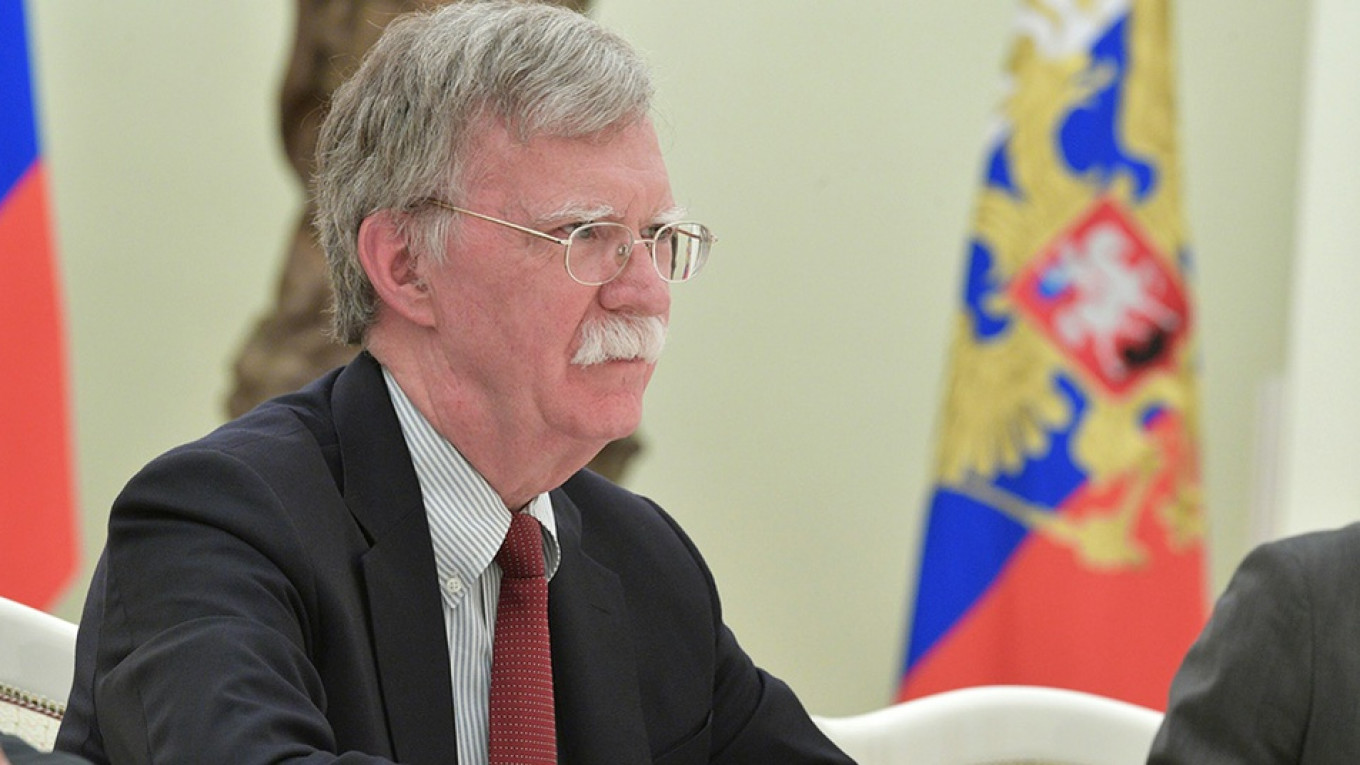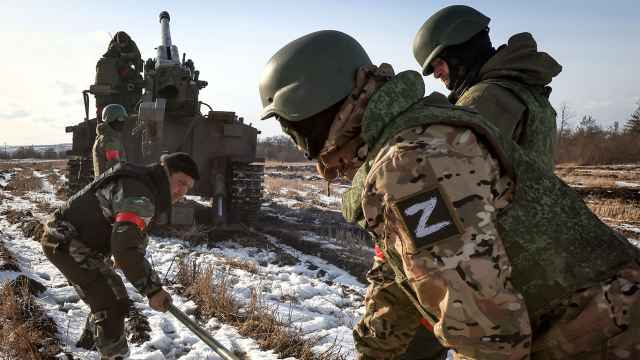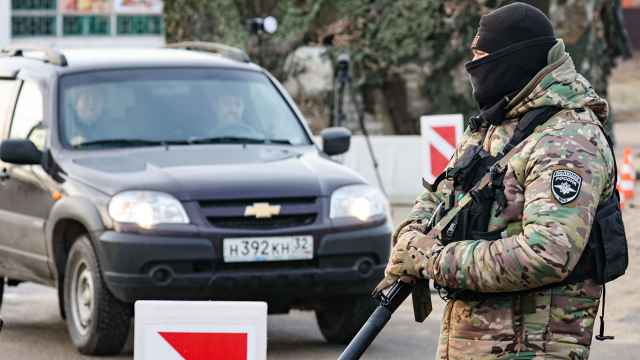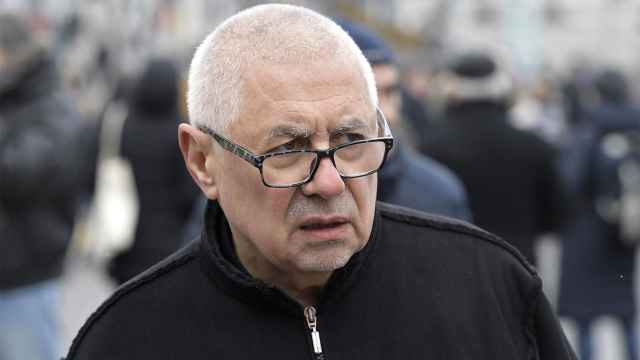The Kremlin said on Tuesday that a landmark nuclear arms treaty Washington says it wants to quit had its weak points, but that the U.S. approach of talking about leaving it without proposing a replacement was dangerous.
President Vladimir Putin was due to discuss the matter in Moscow later on Tuesday with U.S. President Donald Trump's national security advisor, John Bolton.
Bolton visited Moscow a day after Russia said it would be forced to respond in kind to restore the military balance with the United States if Trump followed through on his threat to quit the treaty and began developing new missiles.
Signed by then-U.S. President Ronald Reagan and reformist Soviet leader Mikhail Gorbachev in 1987, the Intermediate-Range Nuclear Forces Treaty required elimination of all short- and intermediate-range land-based nuclear and conventional missiles held by both countries in Europe.
Its demise could raise the prospect of a new arms race, and Gorbachev, now 87, has warned that unraveling it could have catastrophic consequences.
Bolton has said he thinks the treaty is outdated because it binds only Russia and the United States and does not cover countries such as China, Iran and North Korea which he says remain free to make intermediate-range ballistic missiles and cruise missiles.
"We have this very unusual circumstance where the United States and Russia are in a bilateral treaty, whereas other countries in the world are not bound by it," Bolton told the Ekho Moskvy radio station on Monday.
Kremlin spokesman Dmitry Peskov said he expected Bolton to explain the U.S. stance to Putin.
"Of course there are weak points (in the treaty), but tearing up the agreement without plans for anything new is what we don't welcome," Peskov told reporters on a conference call.
"To first reject the document and then (talk of) ephemeral possibilities to conclude a new one is a dangerous stance."
Russia and the United States have long accused each other of violating the terms of the treaty, something they both deny.
Trump's withdrawal announcement is causing concern among German lawmakers, who are keenly aware that Berlin would be within strike-range of any intermediate-range ballistic missiles deployed in Russia's Kaliningrad exclave on the Baltic Sea.
Foreign Minister Heiko Maas said on Tuesday that Germany would seek NATO's help to maintain the treaty between Russia and the United States, and was ready to take action to force Moscow to comply with the pact.
A Message from The Moscow Times:
Dear readers,
We are facing unprecedented challenges. Russia's Prosecutor General's Office has designated The Moscow Times as an "undesirable" organization, criminalizing our work and putting our staff at risk of prosecution. This follows our earlier unjust labeling as a "foreign agent."
These actions are direct attempts to silence independent journalism in Russia. The authorities claim our work "discredits the decisions of the Russian leadership." We see things differently: we strive to provide accurate, unbiased reporting on Russia.
We, the journalists of The Moscow Times, refuse to be silenced. But to continue our work, we need your help.
Your support, no matter how small, makes a world of difference. If you can, please support us monthly starting from just $2. It's quick to set up, and every contribution makes a significant impact.
By supporting The Moscow Times, you're defending open, independent journalism in the face of repression. Thank you for standing with us.
Remind me later.






